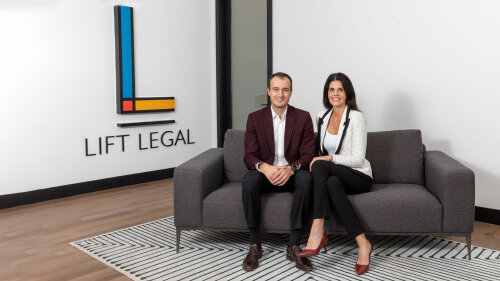Best Adoption Lawyers in St. Albert
Share your needs with us, get contacted by law firms.
Free. Takes 2 min.
Free Guide to Hiring a Family Lawyer
List of the best lawyers in St. Albert, Canada
About Adoption Law in St. Albert, Canada
Adoption in St. Albert, Alberta, operates within the framework set by provincial legislation-specifically the Alberta Child, Youth and Family Enhancement Act. Adoption is the legal process whereby an adult becomes the legal parent of a child, and the rights and responsibilities of the biological parents are transferred to the adoptive parents. Adoption can be pursued for children of all ages, and may occur through public agencies, private arrangements, or step-family and relative adoptions. St. Albert, as part of Alberta, follows the same processes and requirements found throughout the province, with support from local social services and legal practitioners to guide residents through each step.
Why You May Need a Lawyer
There are various situations in which seeking the advice or representation of a lawyer during the adoption process is recommended:
- Navigating legal paperwork and meeting statutory requirements for adopting a child.
- Adopting a stepchild or relative, which often involves special legal considerations.
- Ensuring compliance with the intricate regulations and protocols if adopting from another province or country.
- Addressing potential disputes, such as obtaining consent from biological parents, or in cases where a biological parent contests the adoption.
- Clarifying the rights and responsibilities of all parties involved before, during, and after the adoption.
- Explaining the consequences of adoption, including inheritance rights, access to records, or the potential for open vs. closed adoption.
- Providing guidance on the post-adoption process, such as birth certificate updates and other legal documentation changes.
Local Laws Overview
Adoption laws in St. Albert are governed by the Alberta Child, Youth and Family Enhancement Act and related provincial statutes. Key aspects include:
- Eligibility: Prospective parents must be at least 18 years old, residents of Alberta, and able to provide a stable, caring home.
- Types of Adoption: Includes public (child in provincial care), private/independent, step-parent, and international adoption.
- Home Study Requirement: A comprehensive assessment by a social worker is usually mandatory, evaluating the suitability of the adoptive home.
- Consent: Consent is generally required from both biological parents, unless parental rights have been terminated or special circumstances exist.
- Best Interests of the Child: Courts and agencies prioritize the child’s emotional, physical, cultural, and long-term welfare.
- Court Process: The final adoption order must be granted by an Alberta court, formally completing the adoption process.
- Openness: Some adoptions allow for continued contact between the child and their birth family, while others may be closed, limiting future contact.
- Adoption Disclosure: Alberta has rules regarding access to adoption records for adult adoptees, birth parents, and adoptive families.
Frequently Asked Questions
What are the basic eligibility requirements to adopt in St. Albert?
You must be at least 18 years old, a resident of Alberta, and able to provide a safe, stable environment for a child. Some types of adoption may have additional requirements set by agencies or the courts.
What is the difference between public and private adoption?
Public adoption involves children in provincial care and is usually managed through government agencies. Private adoption involves a direct arrangement with the biological parents, often facilitated by a licensed adoption agency or lawyer.
Do I need the consent of the birth parents to adopt a child?
In most cases, the consent of both birth parents is required unless their rights have been legally terminated or circumstances allow for a waiver of consent under Alberta law.
What is a home study and why is it required?
A home study is a comprehensive assessment conducted by a qualified social worker to determine your suitability and readiness to adopt. It includes interviews, background checks, and home visits.
Can single people adopt in St. Albert?
Yes, single applicants are eligible to adopt, provided they can meet the province's requirements for providing a supportive and stable home environment.
How long does the adoption process usually take?
The adoption process can take from several months to over a year, depending on the type of adoption, the circumstances of the child, and the completion of all legal and administrative requirements.
Is international adoption allowed in St. Albert?
Yes, but it involves additional legal requirements and coordination with both Canadian and foreign authorities. It is important to work with a licensed adoption practitioner experienced in international cases.
What happens after the adoption is finalized?
Once the adoption order is granted by the court, you will have full parental rights and responsibilities for the child. An amended birth certificate is typically issued listing you as the parent(s).
Can adopted children access information about their biological families?
Alberta allows adult adoptees and, in some cases, birth relatives to obtain identifying information, subject to certain disclosure rules and mutual consent provisions.
Do I need a lawyer to adopt in St. Albert?
While not all adoptions legally require a lawyer, it is strongly recommended to seek legal advice, especially in private, relative, and international adoptions, or if complications arise.
Additional Resources
Individuals considering or undergoing adoption in St. Albert can benefit from the following resources and organizations:
- Alberta Adoption Services: The provincial government body responsible for regulating and coordinating adoption processes.
- Alberta Courts: For information on the court aspects of adoption, including filing for adoption orders.
- Licensed Adoption Agencies: These agencies are authorized to facilitate both public and private adoptions.
- Legal Aid Alberta: Offers legal assistance for those who may not be able to afford private legal counsel.
- Family Law Information Centre: Provides resources and information related to family law and adoption in Alberta.
- Canadian Bar Association - Alberta Branch: Offers tools for finding licensed family and adoption lawyers in your area.
Next Steps
If you are considering adoption in St. Albert and believe you may need legal advice or representation, start by gathering basic information about your situation, such as your relationship to the child, the type of adoption you are considering, and any existing legal or custody arrangements.
Contact a local family lawyer with experience in adoption matters for an initial consultation. They can clarify your eligibility, help you understand the requirements specific to your circumstances, and guide you through the legal process. If you are working with an agency or social worker, coordinate closely with them and your legal counsel to ensure you meet all deadlines and documentation needs.
If you have limited financial resources, inquire with Legal Aid Alberta to see if you qualify for assistance. Always ensure that any adoption service provider or agency you engage with is properly licensed and recognized by the Alberta government.
Adoption can be a complex and emotional journey, but with the proper guidance and resources, you can navigate the process and welcome a new member into your family with confidence.
Lawzana helps you find the best lawyers and law firms in St. Albert through a curated and pre-screened list of qualified legal professionals. Our platform offers rankings and detailed profiles of attorneys and law firms, allowing you to compare based on practice areas, including Adoption, experience, and client feedback.
Each profile includes a description of the firm's areas of practice, client reviews, team members and partners, year of establishment, spoken languages, office locations, contact information, social media presence, and any published articles or resources. Most firms on our platform speak English and are experienced in both local and international legal matters.
Get a quote from top-rated law firms in St. Albert, Canada — quickly, securely, and without unnecessary hassle.
Disclaimer:
The information provided on this page is for general informational purposes only and does not constitute legal advice. While we strive to ensure the accuracy and relevance of the content, legal information may change over time, and interpretations of the law can vary. You should always consult with a qualified legal professional for advice specific to your situation.
We disclaim all liability for actions taken or not taken based on the content of this page. If you believe any information is incorrect or outdated, please contact us, and we will review and update it where appropriate.









